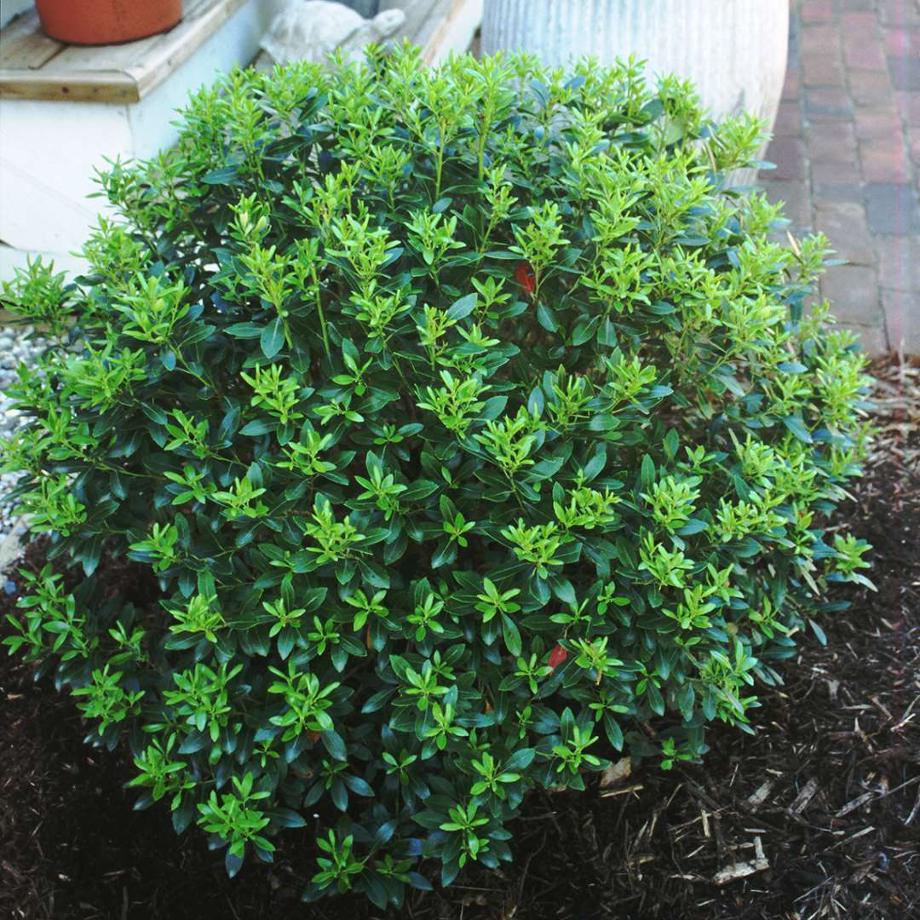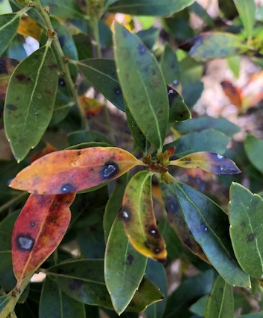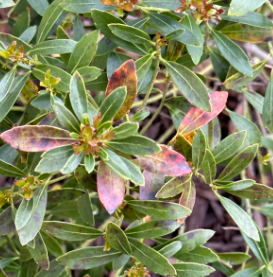Indian Inkberry Plant
Indian Inkberry is a hardy, medium-growing shrub that prefers acidic, well-drained soil. Though not edible, it has medicinal applications.

Habit
Shrub
Height
1 to 2 m
Growth
Medium
Soil
Well-drained, Loamy
Shade
Partial
Moisture
Medium
Edible
No
Medicinal
Yes
Origin
India
Climatic Condition
Tropical, Subtropical
Temperature (°)
18°C to 28°C
Humidity (%)
60% to 70%
Potting media
40% Loam, 40% Sand, 20% Compost
Fertilizers
Balanced Fertilizers
Watering
Regular watering
Plant Weight
0.3 to 0.5 kg
Flowering Time
Spring to Summer
Soil Ph level
6.0 to 7.0
Water Ph level
6.0 to 6.5
Soil EC
0.5 to 0.8 mS/cm
Yield Per Plant
1 to 2 kg per plant
NPK ratio
12:12:12
life Span
10-20 years
Health Benefits
Antioxidant, Anti-inflammatory
Suggested Grow Media or Potting Mix ?
40% compost, 40% loam, 20% sand
Suggested Fertigation/Fertilizers
Fertilize annually with acidic plant fertilizer.
Common Diseases and Remedies
Leaf Spot Root Rot Rust Scale Insects Aphids
Brown or black spots on leaves Yellowing, wilting leaves Yellow or orange pustules on leaves Yellowing, stunted growth Curling, yellowing leaves
Prune infected leaves, neem oil Improve drainage, reduce watering Remove infected leaves, neem oil Horticultural oils, neem oil Insecticidal soap, neem oil
Copper-based fungicides Fungicides containing metalaxyl Fungicides with sulfur or copper Systemic insecticides like imidacloprid Imidacloprid-based insecticides
HEALTH BENEFITS
· Used in traditional medicine for liver and kidney health.
· Potential antibacterial and anti-inflammatory properties.
· Some species are toxic, so usage should be carefully monitored.

